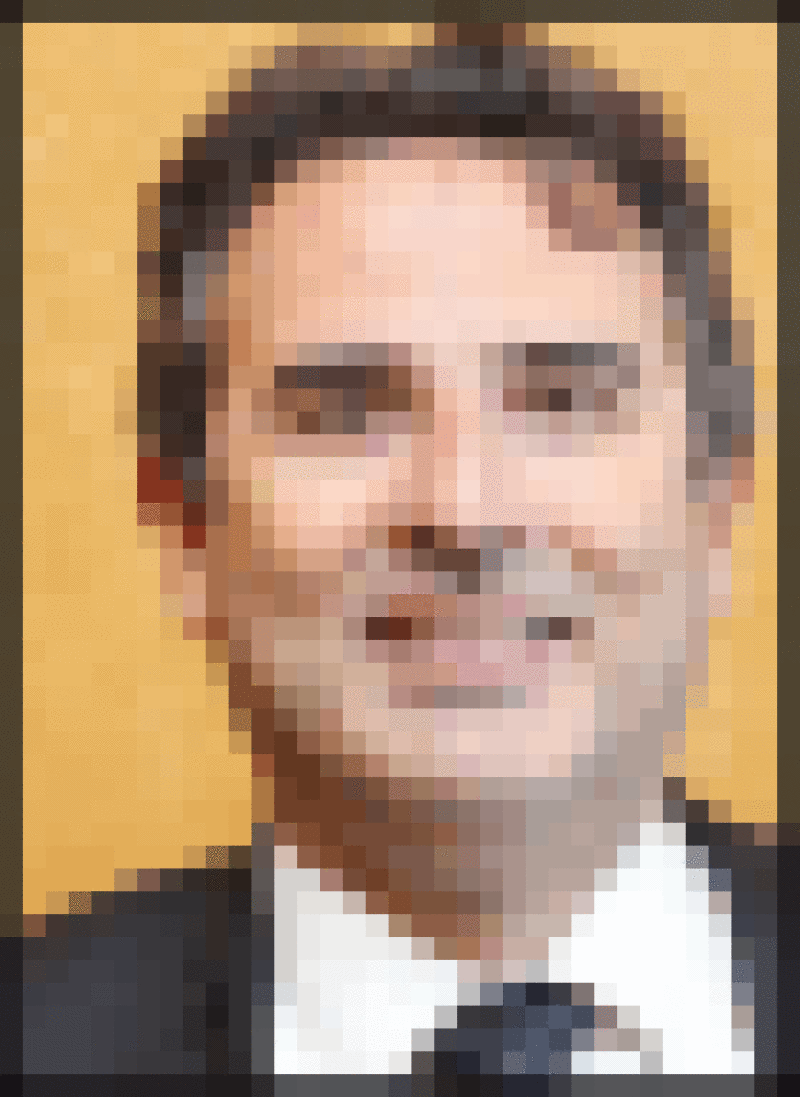
| Executive summary |
| • Lebanon’s economy is struggling with low growth and Syrian refugees have added to the burden • Central bank is financing start-ups to stimulate the economy • Banks and businesses are pushing for fiscal reform to counter the rising deficit • Infrastructure spending is also much needed • However, the country is politically resilient and the banking sector is strong |
Euromoney We meet during tough times for Lebanon. The economy faces twin challenges: a lack of cohesion in domestic politics, leading to declining public finances; and external pressures, with the influx of refugees from Syria. How is the economy bearing up?

Euromoney Why is the economy struggling? Is it chiefly domestic issues like public finances, or the pressures created by Syria?

| Further reading |
 |
| • Learn more about the participants • Salamé keeps Lebanon going |
At the same time, the institutions in the country are paralyzed. We don’t have a president, the government is not functioning properly and now you have the parliament talking about extending its mandate, and none of these factors help the economy.
Euromoney Is it fair to say that, in these circumstances, a far greater burden is falling on the central bank than one would otherwise expect?

Euromoney Let me ask the banks for their views on the state of the economy.

As to growth, the IMF has increased its estimate of GDP growth from 1% to 1.8% for this year, but it’s still much lower than the 8% or 9% rates we used to have a few years ago. And we don’t expect to see a big improvement in GDP growth due to the regional circumstances.
The banking sector is faring well: we don’t have the strong growth of three years ago, but still we have acceptable increases in deposits, and loans are growing at a reasonable level due to incentives from the central bank. We are very resilient in banking and have been able to maintain profits: in the first six months of this year the profits figures for the banking sector were about the same level as the year before.
Euromoney The IMF, in an otherwise quite damning report, called for a modest increase in GDP over the next two years, to 1.8% next year and 2.5% the year after. Given the environment you are describing, is increasing growth realistic?


GK, Bank Audi That barely matches the growth in the population, which means there is no real growth.
One could argue there is another side to GDP which is not recognized. The Syrian influx has weakened growth in output, but on the slightly positive side, there has been a contribution by the Syrians to the spending pool in terms of lodging, food and beverages. It has slightly made up for some of the losses.
Nonetheless, there is a loss of job opportunities, as we have at least 20% unemployment today because of the cheaper unskilled Syrian workers who do the jobs that the Lebanese will not be able to compete for. Also, it will strain our infrastructure.
But although it has caused some political bickering over the last few years, we have still not seen any dramatic changes on the security side because of the refugees. There are incidents, and then everything gets controlled. It’s somehow typical of Lebanon: we see tension up to a limit, we reach the tip, and it gets controlled.
I have a chart that shows the dramatic growth in deposits in the banking sector, and how it has responded to times of stress. When rating agencies ask us about stress tests in the banking sector, we show them this chart: we have had two or three incidents of stress and then deposits continue to flourish after that. The assassination of premier Hariri, the 2006 war; we have some brief flight of capital but nothing serious.
Euromoney Wassim, this is the environment within which you have chosen to launch a new business. What’s been your experience of trying to start something new?

Euromoney Generally, do you believe that technology or social media can help to drive positive economic news in Lebanon?

We found our niche, but it’s still not enough. We are trying to find new ways to make business.
Euromoney Presumably your business hasn’t involved a lot of start-up costs, or a big need for working capital?

Euromoney Let’s discuss the stimulus packages that have been launched by the central bank. How successful do you think these measures have been so far?

The central bank will secure 75% of a bank’s investment in a start-up or fund, and that guarantee could go up to 100% if it’s an accelerator. If there is a profit, the central bank will take 50% of it and the guarantee will be paid back; if there’s a loss, nothing will be required from the banks. This is for two reasons: first of all, we do not want to expose banks to any losses; second, we do not want them to use their liquidity in this type of activity.
It works through a loan provided from the central bank to the bank, and financial engineering is used to structure the loan in a way that the yield covers 75% of the investment.
You’re asking me is it a success or not. We think it is a very important step forward in this sector. There is a really big need for things like Sociatag, and the governor strongly believes this is a very promising sector. It is too early to assess if it is a success or not: we are building a sector, so you have to look long term, three to five years. We know it is a new culture for the banks – they are used to loans and credits, and here we are talking about equity financing. But some banks have already established units and departments that are specialized to work on Circular 331. There are two funds out there now, accepted by the central council, that are going to invest in start-ups.
Euromoney It’s clearly a highly considered and technical approach to stimulus, not just a wave of liquidity being put into the market. Presumably you’re trying to avoid inflation while doing this?

Euromoney What do the banks think of the central bank stimulus – not only Circular 331 but the earlier soft loans to the banking sector? What’s your assessment of their impact?

GK, Bank Audi The first two packages stimulated good business. They really helped banks to earmark a substantial amount of their liquidity to projects. We believe it has worked well and it will continue to do so, as long as there is the tightening effort for the side-effects of such stimulus.
Euromoney The impression I have is that the tightening is clearly front of mind at the central bank?

It is also right to encourage IT and new technology. In Lebanon growth has always been driven by tourism and real estate. Those sectors are very much dependent on the political situation. We need a different model.

GK, Bank Audi You also have medical tourism, which is important; wine tourism, which is growing and very successful; and we believe if the country can create an olive oil board, we can be one of the most important olive oil providers.
But we need some legislation beyond the initiatives; the central bank has been the only one doing the thinking. It’s been single-handed and you really reach a point where you have to go and turn on the legislative side, and the publicity side: how to sell Lebanon.
Euromoney Wassim, as somebody who has sought funding for the knowledge economy, what’s your view on what the central bank is doing? What’s been your experience seeking funding in Lebanon?

But there is not enough push from the ministry now. The new minister is not really as involved with us as the other minister was, and we don’t think the banks are really pushed to help start-ups.
My perception is that banks are still scared to take risks on start-ups. They only give to good revenue models – but if businesses have good revenue models they don’t need the funds. Banks are looking for easy money, good revenue streams that prove they can get their money back…


The funds are managed by Lebanese who have been successful outside Lebanon, who are experts in IT, and these are the ones who are setting up new investments. We are providing funds, but to expert people who have a track record.




Euromoney Yes or no: will you lend more to the knowledge economy as a consequence of Circular 331?

Euromoney The recent IMF report made for troubling reading in terms of the country’s public finances. The fiscal deficit, budget deficit and public debt to GDP are all high, and the IMF expects all three to rise. Let me ask the Ministry of Finance: do you agree with the IMF’s numbers, and what will you do about them?

The good news is that those figures do not take into account any of the extra revenues that were approved by the government, and that are slowly but surely becoming a reality. When these are introduced to the budget we will have much better figures, and this will be reflected in 2015. We will not reach primary surplus immediately, but we will have much more balanced accounts.
On debt, what is happening now is totally different from the past where we were taking short-term measures. Now we finally have a situation where Lebanon has taken care of its infrastructure. We are talking about massive investment that is taking place in electricity, which is hopefully going to show some results in the next few years.
Growth is low by any standards, but please take a look at the region. Any country would be happy to be in the same situation as Lebanon. We have shown not only that this country is a solid one, but also that it is politically resilient. We don’t have a system that works the way we want – we don’t even have a president of the republic – but at the same time we have a system that is able to protect itself from the negative factors taking place in neighbouring countries.
The IMF said we have to find our way back to surpluses. We know that very well. We have an exit strategy based on revenue measures that is more or less in line with the report.
Having said that, we have had a major shock from the Syrian crisis. Imagine the US seeing 60 million Mexicans flooding in: that would be comparable in terms of size. Yes, we have 200,000 people who are under the line of poverty; we have infrastructure that is being depleted by the presence of refugees; we have growth that has fallen. But we have managed despite not receiving any level of support, per se. There is a lot of support being given to the Syrian refugees through various agencies, but the sovereign itself is counting the few millions that are being given when the need is billions.
Euromoney The external pressures on Lebanon are undeniable, but there is also a sense that Lebanon has not helped itself by, for example, raising public sector wages considerably when the money might have gone towards infrastructure. How do you respond?

Yes, the issue of public debt is a major one, but it is not the only one. At some point we have to give this country the potential to grow, and this potential has to be given through proper infrastructure, provided we are able to put the deficit on a declining trend right afterwards. This is what is happening right now but we are not able to publicize it properly. We knew, for example, for a very long time that we need to invest more than $2.5 billion to fix electricity, and when we invest that, we shouldn’t see it as a loss, we should see it as an investment that will make returns at some point. We know that other areas need significant amounts of investment: in the past the only thing that took place was a boom in real estate construction, and that is not enough. We are announcing a much more diversified approach that we can build on.
Euromoney What do the rest of you think of these numbers, and what do you want the government to do about it?

What needs to be changed? Firstly the electricity company: 40% of the deficit comes from that. You have a problem with end-of-service indemnities, a very costly system that has to be reformed. But these things can only be done if political parties agree they are crucial.
Lebanon is in need of important infrastructure projects, but most of the government spending is on salaries and interest. There is very little investment in infrastructure, which would lead to higher growth. We don’t just have problems with electricity but with water, transportation, IT, the speed of internet. Spending should be on those, not only on salaries and interest.
We can depend more on cheap finance, taking it from international and regional development institutions and paying a low interest rate. If you have spending on infrastructure you can now get funds at very low rates.

GK, Bank Audi You have three elements that have created the fiscal imbalance. Electricity is a big issue in the loss of revenue, and as much as changing the tariff will help, you also have to cut back on the abuse of networks.
We have a very low tax collection rate: if you compare it to other developing countries, our ratio of collection of taxes to GDP is much lower than most. Bank employees are the largest contributor to income tax that is collected in this country. And we could do a lot more with property tax. The IMF also insisted on dramatic changes in VAT, to reach 15% by 2016, in a way that doesn’t affect the poorer section of the population.
Finally, when you see rising interest rates on the horizon, the problem of fiscal imbalance can become more dramatic. Interest rates have been so low for many years and the turnaround is soon to come: what will you do then?


Euromoney Alain, you touched on electricity, and others have mentioned it: Electricité of Liban seems to be an emblem of problems in Lebanese governance and fiscal imbalances. How are you going to fix it?

Euromoney You say it’s on the table, but that of course is different from anything being done. There is a sense that there is a lack of political cohesion to effect the fiscal reform that is needed. Do you accept that?

Euromoney Let me ask the banks to respond to what Alain has said on public finances, electricity and the government.

Also, I mentioned earlier the question of end-of-service indemnities. We have a system in Lebanon now, becoming bigger every year, where when you reach retirement in the public sector you get 85% of your last salary, untaxed. If you die, your wife gets it, and if your wife dies and you have daughters who are not married, they get part of it. It is an old system that was around when wages were very low, but now there has been a big increase in the wages, this system is very costly. If we don’t deal with this now it will be a major problem for the government.
Euromoney Alain, your response?

But the increase in wages and salaries had to happen, one way or another. We cannot eradicate the middle class of Lebanon. We cannot. And we have been doing that systematically. It is very important that people get enough money to live properly.

GK, Bank Audi You know how much real estate the government owns in Lebanon? It’s in excess of $50 billion. Can you imagine that amount of money, even if partly invested? What are we doing with that?
Euromoney What are you doing with that?



GK, Bank Audi There are 52 industries or service businesses related to oil and gas. Imagine the amount of jobs this will offer: drilling offshore or onshore is not simply about foreign companies coming here to drill.


GK, Bank Audi And our competitive edge will go, because there are other producers in the region. The commercial terms will go down. We had better wake up to that reality.
Euromoney Let’s talk about the banking sector, which has been extraordinarily resilient over the long term when you consider the environment you have operated in. But, at the same time, you are basically funding the government; this is the main reason Moody’s is holding the national credit rating low because it considers you to be worryingly exposed to a negative sovereign event. How has the sector stayed this strong?

As for the rating agencies, they don’t always look at the history of banks and the country. How Lebanon has never defaulted, how it always has a high level of foreign assets. Several times rating agencies have come and told us: you are heading for disaster. But we are not Latin America or Eastern Europe. We are very special. For a start, we have more Lebanese living abroad than we have people living in Lebanon: three or four times as many. The remittances constitute $7 billion to $8 billion, minimum, and this is a buffer.


GK, Bank Audi In 1990, when serious strife was growing in Lebanon, the collected equity of Lebanese banks was $50 million. Correspondents had problems trusting us. But there is a very important point: the closeness of the management of Lebanese banks to the ground. Our ears are to the ground all the time. We are not distant from our day-to-day business, and all the people who have managed these banks over the last 25 years have done the same.
We’ve seen what happened to the tigers of southeast Asia when the Soros and Buffetts of the world decided to unplug their investments and leave. Everything tumbled. But that will not happen in Lebanon because we are holding that paper and we understand the delicate situation of what is happening in the country. We have a better reading.
Euromoney All three private sector businesses represented here today have built or are building regional models. Two thoughts occur: one is that it demonstrates the ability of Lebanese to succeed across borders, but the other is to wonder whether it’s possible to build a profitable business in Lebanon without going overseas. Wassim, building a purely Lebanese business was not going to work for you; you had to reach out to Dubai?

Euromoney So it’s a problem of the market and the nature of income and how it’s used, not a question of being able to launch a business in Lebanon?
| |
Euromoney Blom Bank, is it a necessity or an opportunity to go outside Lebanon?

Euromoney Gaby, for Bank Audi, is expanding internationally a necessity because of limited growth in Lebanon, or following a business opportunity with the diaspora?

GK, Bank Audi Well it’s a mixture of both. Following the diaspora isn’t exactly what has happened, because you don’t practically have a diaspora in Egypt for example. We reached the stage in early 2000 when for the banking sector, especially the major five, the spirit became larger than the body – the body being Lebanon. It was too small for us to be able to make efficient financial decisions for return on equity. We had to take that strategy, enlarge the pie and take a share of it.
In most cases, we went through the greenfield approach where we built the operation with people who understood our business and risk appetite and the level of service we needed to be involved in. Measured by the numbers you see – growth, size, profitability, NPLs – I think it worked.
Euromoney We’ve spoken of the impact Syria has had on GDP, but how about on banking?

GK, Bank Audi As early as 2011 and early 2012, I think we all went through major provisioning of most of the portfolio in Syria. We don’t expect any major surprises there.

However, the potential is very important: it is next door, we have an excellent relationship and most banks have had a good experience there. At our subsidiary, most of the loans were either repaid or fell in value from the devaluation of the currency; we had very few cases of problems. Hopefully in the near future we can expand our operation.
